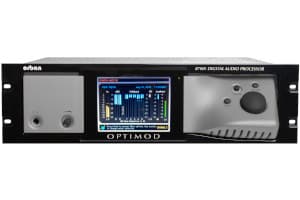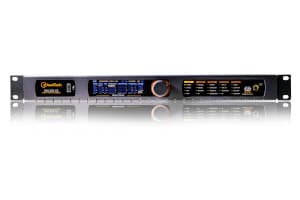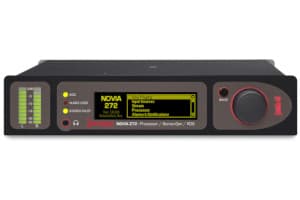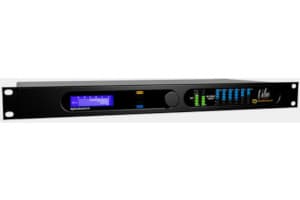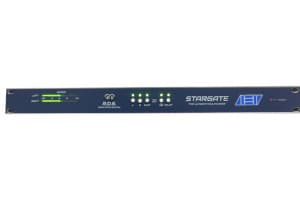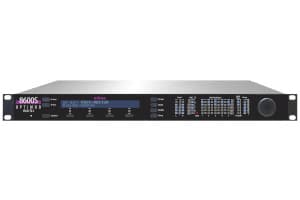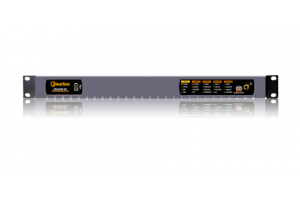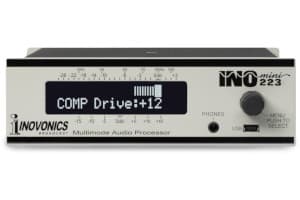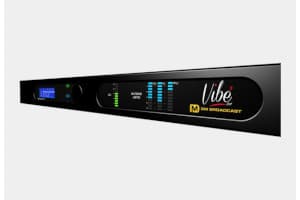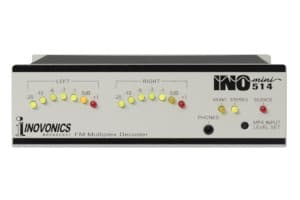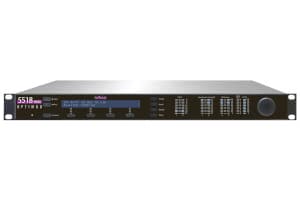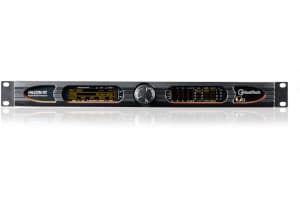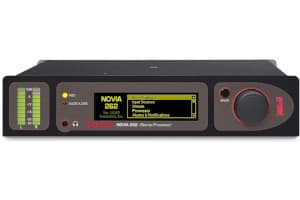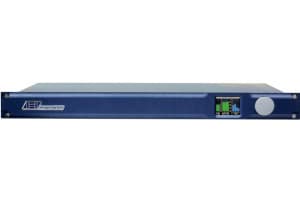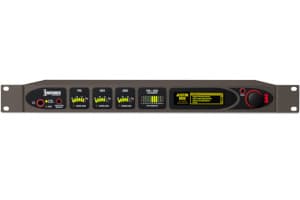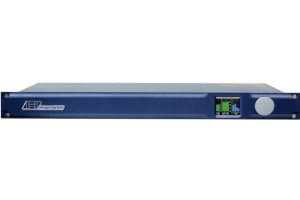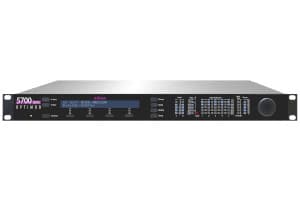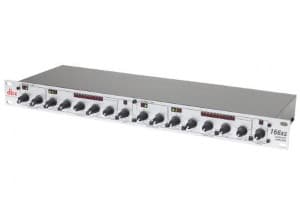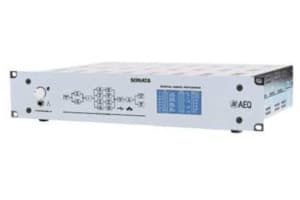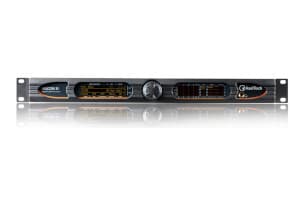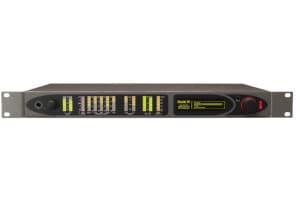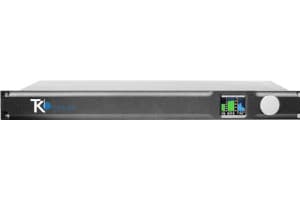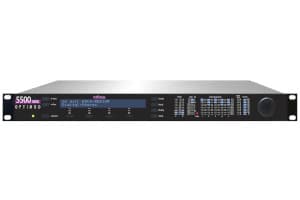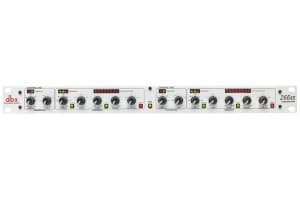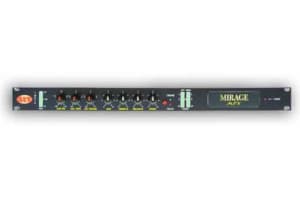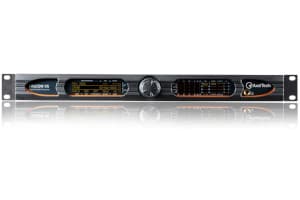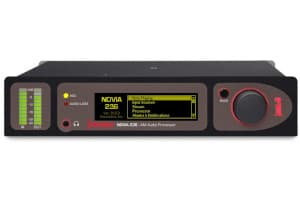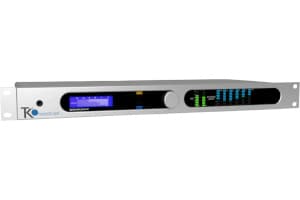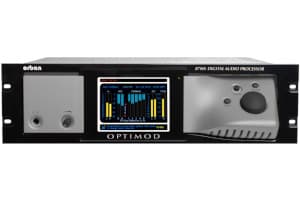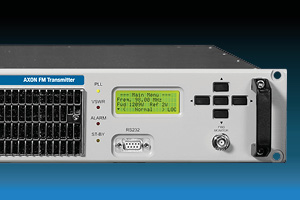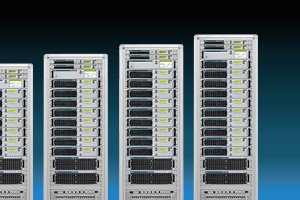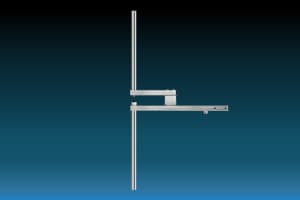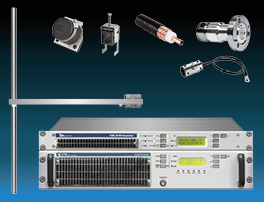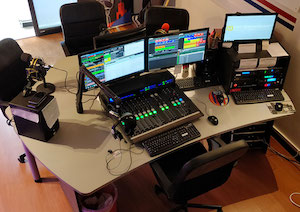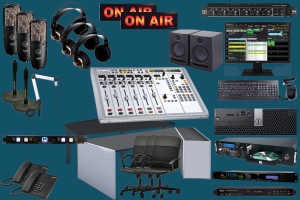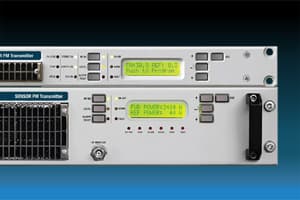Audio Processors

What is an Audio Processor?
Audio processors are electronic devices that manipulate audio signals to improve their quality, add effects, or change their properties.
In the studio, they become essential, as they are usually the last piece of equipment that your audio signal goes through before it is transmitted.
They improve and optimize the sound quality or your radio, thus giving it a unique sound with its own character.
Main features of an Audio Processor
Audio processors can perform a variety of functions, such as:
- Equalization: Adjusting the frequency balance of an audio signal to improve its clarity and intelligibility.
- Compression: Reducing the dynamic range of an audio signal, making it louder and more consistent.
- Limiting: Preventing an audio signal from exceeding a certain level, to avoid clipping and distortion.
- Gating: Silencing an audio signal below a certain threshold, to reduce noise and feedback.
- Reverberation: Adding the effect of echo or ambience to an audio signal.
- Delay: Creating a time delay between two audio signals, to create rhythmic effects or to compensate for latency.
- Chorus: Creating a doubling effect on an audio signal, to make it sound thicker and fuller.
- Flanging: Creating a phasing effect on an audio signal, to create a swirling or wobbly sound.
Analog or Digital?
Audio Processors can be analog or digital.
An Analog audio processor directly alters the electric signal coming from the transmitter,
before this goes through the amplifier(s) and ultimately reaches the speakers that will then project it as audio waves.
A Digital processor, on the other hand, intervenes in the digital representation – a sequence of symbols, usually binary numbers – of the signal.
Choosing between these two options is merely a question of the type of broadcasting that is intended.
What are the main advantages of using an audio processor?
Here are some of the benefits of using audio processors:
Improve the sound quality: Audio processors can help to improve the sound quality of audio signals in a number of ways.
For example, equalization can be used to correct frequency imbalances, compression can make audio signals sound louder and more consistent,
and limiting can prevent clipping and distortion.
Add effects: Audio processors can be used to add a wide range of effects to audio signals, such as reverb, delay, chorus, and flange.
These effects can be used to create a variety of creative sounds and to enhance the listening experience –
you can choose between several audio moods, such as jazz, pop, rock, classical, etc...or even create your own sound!
Optimize sound for different contexts: Audio processors can be used to optimize the sound of audio signals for different contexts.
For example, a live sound engineer might use audio processors to make a band sound louder and more punchy,
while a mastering engineer might use audio processors to make a song sound more polished and professional.
Concluding thoughts
Mainly designed for medium/small radios (local radio stations, community radios, web radios), the Audio
Processor combines ease of use, flexibility and robustness.
From a technical point of view, it is a combination of a multiband compressor/limiter and a parametric equalizer together with other effects.
It compresses the overall dynamics of the program, but it is
also possible to increase the volume, because it prevents against
over-deviation, clipping and other saturations – all effects that create
distortion.
If you are serious about audio production, then using audio processors is essential. The final result will be a “louder” and “bigger" sound
for your radio.
There is a psychological reason behind it: when searching on the radio dial, people stop to listen at the
radio that sounds louder, bigger and better –
and this increases your audience.
 BACK TO ON-AIR STUDIO
BACK TO ON-AIR STUDIO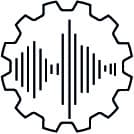 AUDIO INTERFACES
AUDIO INTERFACES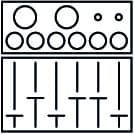 AUDIO MIXER
AUDIO MIXER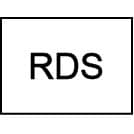 RDS ENCODER
RDS ENCODER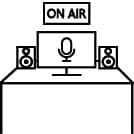 STUDIO ACCESSORIES
STUDIO ACCESSORIES